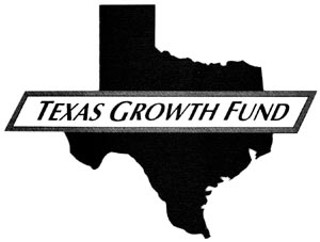No Growth at the Growth Fund
Despite dismal returns on state dollars, the Texas Growth Fund springs eternal
By Lucius Lomax, Fri., Jan. 30, 2004

If a legislator wants to make an inappropriate contact to get state investment managers to put money into a pet business, you'll be happy to know that the lawmaker will not make the call himself. That would be unseemly.
Instead, someone will call for him.
"Just for the record, we've never had a member of the Legislature call us," said Stephen Soileau, a managing partner of the Texas Growth Fund – a $577 million pool of public money that is among the latest efforts of state government to get more bang for its buck. "What always happens is somebody calls and says, 'I'm a close friend of ...' That's what happens.
"From the outset of the fund, there was a lot of concern about who was going to twist our arms," Soileau explained. "There's all sorts of constituencies that call us and say we want you to do this for X, Y, Z reasons. The fact of the matter is we've never had any difficulty fending off those calls."
What happens with the TGF's investments – if the public is really profiting from deals made or if the money is being used as a political handout to selected businesses – has become an issue because the state of Texas is, well, fiscally challenged. To remedy that situation, the growth fund, headquartered in Austin and financed by the state's major public pension pools as well as the University of Texas and Texas A&M, is asking for a few hundred million dollars more in seed money, looser restrictions on its investments, and a very tight lid on information about its operations.
That is a tall order, and one not necessarily consistent with recent trends in state government. But the decisions may come as soon as Friday, and TGF may get most of what it wants – because, well, the state is broke.
Or that's the reason people will give you.
Who's Watching the Watchers?
How badly have the state's pension funds done in recent years? Overall, the numbers are dismal. The largest, the Teacher Retirement System, for example, peaked at $90 billion in 2000 and is $77 billion today, a loss greater than last year's entire state budget deficit. But numbers at TRS alone don't do justice to the poor returns. A couple of anecdotes convey more effectively the sense of fiscal doom that is only now, with the rising stock market, beginning to lift.During a legislative committee meeting last year, Sheila Beckett, executive director of the Employees Retirement System, which represents 200,000 present and former public workers, suggested postponing benefits to families of slain police officers – a proposal that legislators considered political suicide. Not long before that, at a meeting of the board of directors for the million-member TRS, a board member asked how she, as a teacher preparing young people to enter the workforce, could justify voting for investments specifically designed to move U.S. jobs offshore.
The answer is desperation, prompted by the bear market of the last few years. But that desperation – which has led the state's money managers to warn of growing unfunded pension liabilities – is not apparent in any discussion of the Texas Growth Fund, which has produced a zero percent return on TRS's and ERS's money over the past 12 years, simultaneously paying tens of millions of dollars to the private management company that controls the fund.
Recently, after revelations of the possibly political nature of some of TGF's investments, the board of the University of Texas Investment Management Company (which works on deals with the growth fund) has ordered a complete review of UTIMCO's business relationships and fees paid in the private equity/venture capital field. But it's a different matter at TGF, which is in the same business and has invested public money in more than 40 businesses across the state, over a span of 12 years and has seen half a dozen bankruptcies.
TGF managers say there are already enough controls.
"There are a lot of checks and balances," insisted Jim Kozlowski, president of the fund, in response to questions at a December teacher retirement board meeting. "We live in a glass fishbowl. The governor's office is very aware of what we do. The comptroller's office is aware of what we do. We report to them. We've got outside auditors."
TGF has no legislative oversight, relying instead on supervision by a board mostly appointed by the governor. And despite Kozlowski's assurances, a spokeswoman for state Comptroller Carole Keeton Strayhorn says her office does not track the fund.
The history of outside auditors is not particularly strong either. For the first 10 years of its operation, TGF's books were checked by Ernst & Young, which just had its hand slapped by the Securities and Exchange Commission regarding what are called "independence" issues. So, too, at the growth fund – Ernst & Young audited both the state investments in TGF and the private company managed by Kozlowski, an arrangement that raised a few eyebrows. Last year, Deloitte & Touche replaced E&Y in the former role.
The TGF's lawyers since inception have been Vinson & Elkins, which represents many state offices (despite recently losing some credibility as Enron's counsel). Last year V&E described as a victory that the law firm's lobbying efforts procured exemption from the Open Meetings Act for the growth fund. And now, in contradiction to recent trends in public investment, set by UTIMCO, Vinson & Elkins has asked Attorney General Greg Abbott to exempt the fund from detailed disclosure of its rates of return on individual companies.
James Huffines, a commercial banker who is a UT regent and UTIMCO board member, said the university's present view of openness, although challenged by investment managers originally, is now being followed in other parts of the country. "I am a strong proponent of disclosure," he said. Speaking of the investment of state money, he added, "If you're doing business with public funds ... the taxpayer has a right to complete financial disclosure. And I emphasize complete."
That is apparently a view not shared in all parts of state government.
Dodging the Voters
At a December board meeting the Employees Retirement System gave the TGF another $100 million to invest. Negotiations are under way to obtain $25 million to $30 million more from UTIMCO, according to TGF officials, and "very preliminary" discussions have begun to invest money from the state's $18 billion Permanent School Fund. The Teacher Retirement System will decide later this week whether to invest another $250 million in TGF.In addition, the growth fund has asked the Employees Retirement System for permission to drop an anti-corruption safeguard from TGF guidelines. That safeguard requires the growth fund to choose deals only when a more-experienced co-investor can be found, which in the past has included UTIMCO, Austin Ventures, and other venture capital firms.
"We believe that, fundamentally, that was put into the growth fund originally as a protective device," TGF second-in-command Stephen Soileau told the ERS board. "There have been times when having that co-investment requirement has limited our ability to be competitive. ... We don't think you need that protection [anymore]."
In its most recent deal, TGF is investing in and managing concrete manufacturers. It also has holdings in aluminum siding production, and just had a profitable sale of its defense company portfolio. In education, the growth fund owns a piece of and helps manage Community Education Partners, a Tennessee-based company that has a contract with the Houston Independent School District to take disruptive children out of public schools and place them in a private setting until they can be returned to HISD. The growth fund makes a profit on this service, TGF President Kozlowski says.
The TGF is a "private equity" investor that buys and manages small and medium-sized companies across the state. The typical window of operation for this kind of equity investment is 14 years, a span of time that Kozlowski and Soileau's firm is coming up against quickly. Enabling legislation creating the Texas Growth Fund ends in 2008, under a constitutional amendment approved in 1988, and can in principle only continue if reauthorized by the state's voters. But that, too, may change.
Returns and fees are the major sticking points. According to Teacher Retirement System figures, while the growth fund has had a 0.02% overall return on TRS's investment since Kozlowski and Soileau's company began using teacher money in 1992, TRS's other investments have increased 233%, rising from $33 billion in '92 to the $77 billion figure today. The Employees Retirement System reports that it has invested $69,500,000 in TGF, paid fees and administrative expenses of $8,757,000, and received a 0.3% rate of return.
Growth fund officials insist that they're not running a sophisticated political fund with public money and that an overall profit is just down the road. And now it appears there may be other ways to continue business – without returning to the voters. That's because TGF has powerful supporters. One is Terry Ellis, a South African expatriate investor appointed by then Gov. Bush to the board of the Teacher Retirement System and now its chairman. Ellis also serves on the TGF board.
"There is an idea that I had," Ellis said recently, as other members of the TRS board showed some restiveness over fees charged and poor growth fund performance. "That is to explore the possibility of TRS making an investment in a Texas fund ... in other words, creating a limited partnership with the TGF management company as the general partner.
"If, on its merits, it makes sense, maybe we can find a structure that is outside of the enabling legislation that we currently have." ![]()
TGF Return: 0.02%
All Other Investments: 233%
Note: The Teacher Retirement System rate of return on $318.4 million over the 11-year period, is 0.02%; the Employees Retirement System return on $69.5 million over the same period has been 0.3%. Both rates round effectively to zero.
Got something to say on the subject? Send a letter to the editor.









